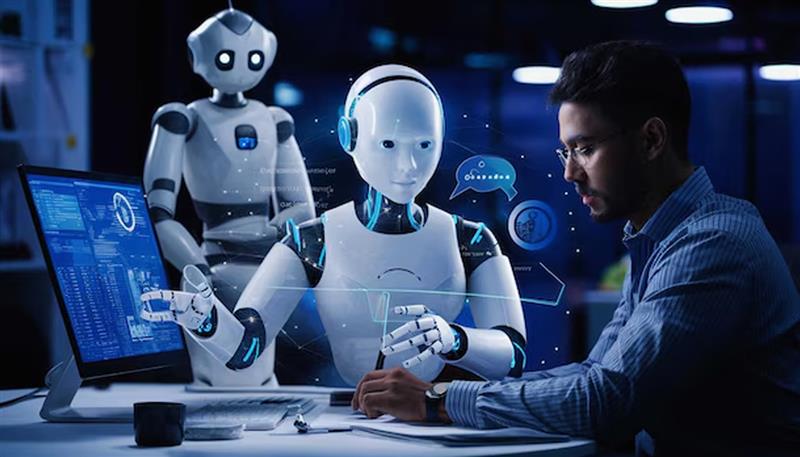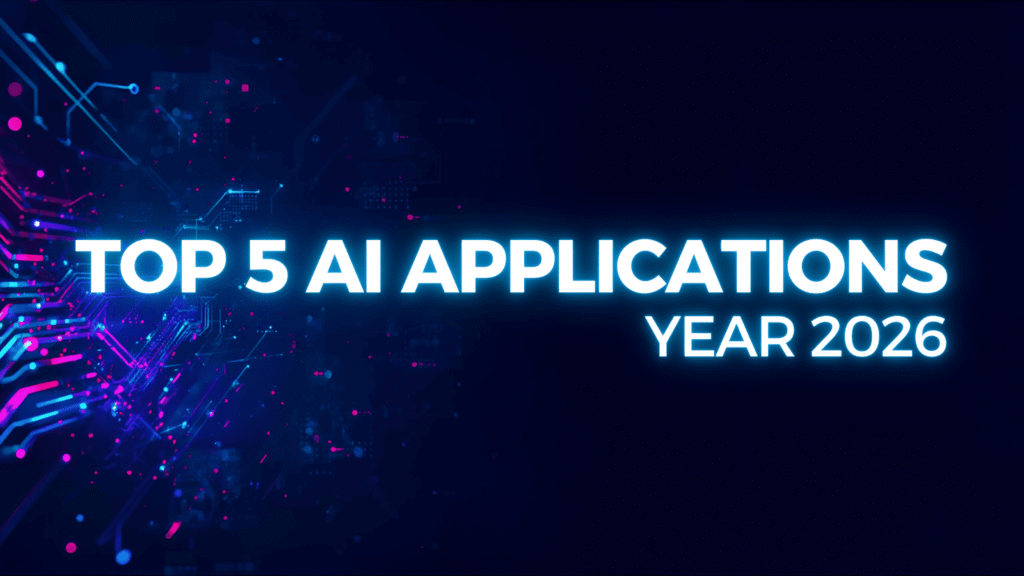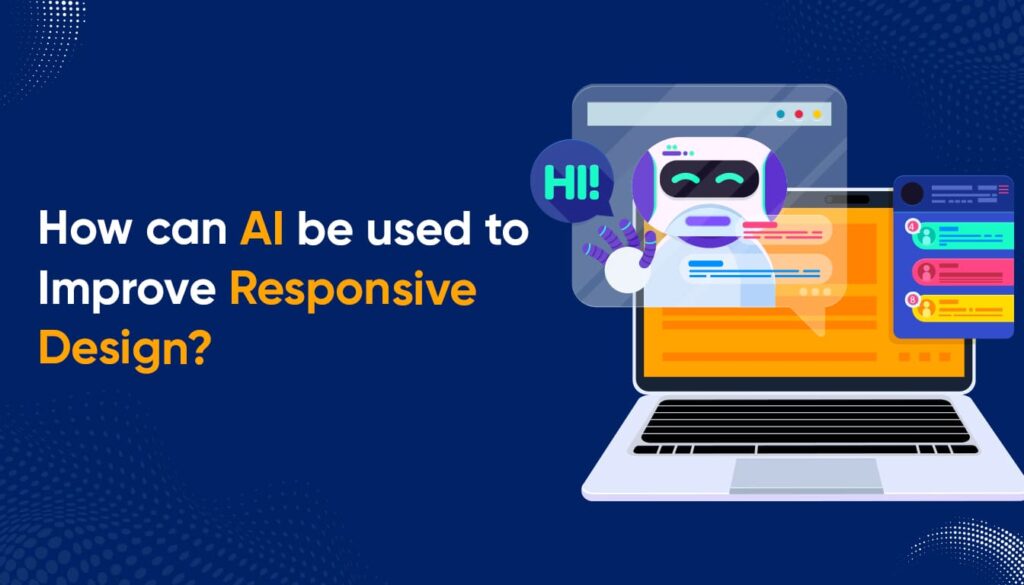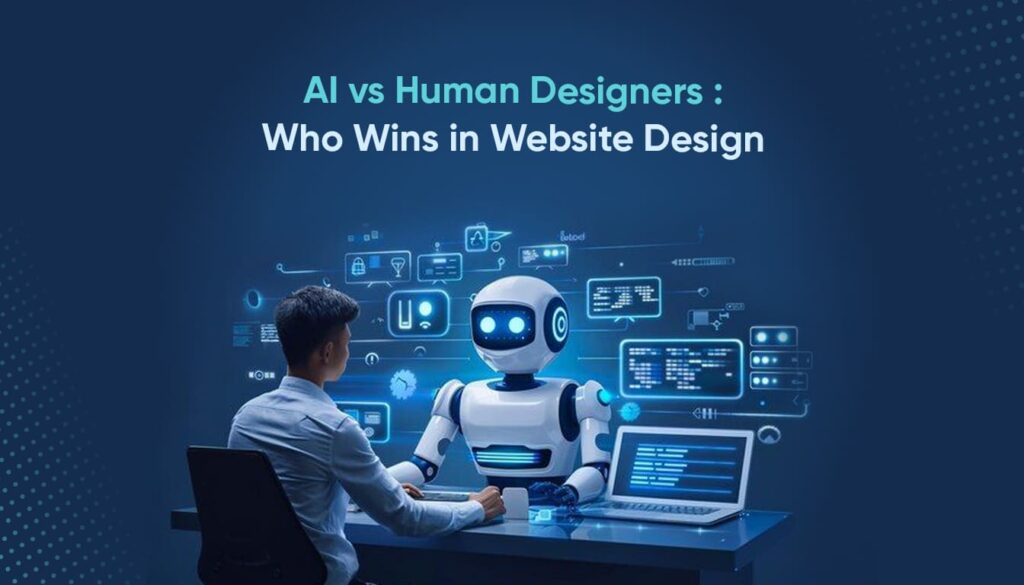
By 2025, AI is expected to transform the marketing industry through advancements in automation, personalization, and decision-making. This technology has not only enhanced the efficiency and effectiveness of marketing strategies but has also opened new doors to creativity and customer engagement.
Artificial Intelligence (AI) is shaping the way for the future of digital marketing. It’s not just about automating repetitive tasks anymore—AI is opening doors to smarter, faster, and more effective marketing.
As we move closer to 2025 , Digital marketing has evolved dramatically over the years, adapting to new technologies, consumer behaviours, and search engine algorithms. Let’s explore how AI is transforming digital marketing and why it’s such a game-changer.
Key Takeaways
Personalization: AI will offer deeper insights into customer behavior, allowing businesses to deliver highly personalized experiences in real-time.
Content Creation: AI will take over more of the creative process, enabling businesses to scale their content production faster than ever.
Customer Interaction: Chatbots will become more conversational and capable, reducing costs and improving customer satisfaction.
Data Analysis : AI tools will streamline data processing, offering real-time insights that make campaign optimization easier and more effective.
SEO Optimization : AI-powered tools enhance search engine rankings with automated keyword analysis.
Voice & Visual Search : AI optimizes content for voice assistants and image recognition.
What is AI in digital marketing?
Artificial intelligence in digital marketing involves the use of machine learning. Natural language processing (NLP) and data analysis to improve the marketing efforts.
AI in digital marketing uses artificial intelligence capabilities such as data collection, natural language processing, machine learning, and analytics to drive better business insights, and automate marketing tasks and decisions.
How AI is changing digital marketing
1. Customer’s personal experience
- Chatbots and virtual assistants powered by AI can provide customer service 24/7.
- AI analyzes user behavior and preferences to deliver personalized content, product recommendations, and targeted ads.
2. Predictive analytics
AI helps marketers predict customer behavior, preferences, and purchasing patterns by analyzing historical data. Predictive analytics helps businesses:
- Identify high converting leads
- Businesses can optimize campaigns based on AI-driven insights, improving ROI.
3. Content creation and customization
- Creating engaging social media content
- Writing SEO-optimized blog posts, social media updates, and email marketing campaigns.
4.Voice and visual search optimization
- AI enhances visual search using tools (e.g., Alexa, Google Assistant) and visual search (e.g., Google Lens, Pinterest).
- Marketers optimize content for conversational queries and image-based searches.
5. Programmatic advertising
- Target the right audience at the right time.
- Reduce manual distractions in ad placement

The future of AI in digital marketing
AI is a technology that is famous all over the world. With the emergence of new developing technologies, more technology professionals are attracted to AI careers.
With the rapid advancement of technology, digital marketing is becoming increasingly complex and competitive. Artificial intelligence (AI) is transforming the world of digital marketing in unprecedented ways.
Future Trends And Predictions
In this blog post, we will explore the future of AI in digital marketing, discussing the latest trends and make predictions about what lies ahead. Some future trends and predictions include:
1. Conversational Marketing
Conversational marketing uses natural language processing (NLP), chatbots, voice assistants, and messaging apps to facilitate real-time, personalized, and human-like conversations with customers. It can help marketers provide faster, easier, and more satisfying customer support and engagement.
2. Hyper-Personalization
Hyper-personalization will enable brands to create more meaningful connections with their audience, resulting in increased customer loyalty and higher conversion rates.
3. Predictive Analytics: Data-Driven Decision Making
In the future, predictive analytics powered by AI will become an essential tool for digital marketers, enabling them to make data-driven decisions and anticipate customer behaviour based on historical data, enabling proactive decision-making.
4. Augmented Reality (AR) And Virtual Reality (VR)
In the future, AI-powered AR and VR experiences will allow businesses to create immersive brand experiences for their customers. From virtual product try-ons to interactive brand storytelling, these latest technologies will revolutionize the way consumers engage with brands, driving higher engagement and boosting sales.
Final Thoughts – Role Of AI In Digital Marketing
Artificial Intelligence is a continuously developing field which is being used in almost every industry in one way or another. It has also contributed a lot in the Digital Marketing Industry and made the work of Digital Marketers easier. AI has many benefits like understanding the target customer better, giving them a good experience and effectively targeting and creating customers.
The future of digital marketing is dynamic, exciting, and full of opportunities. To succeed in 2025 and beyond, businesses must embrace new technologies, understand the evolving needs of their customers, and remain committed to ethical practices. By doing so, they can create meaningful connections with their audiences and drive long-term success.




